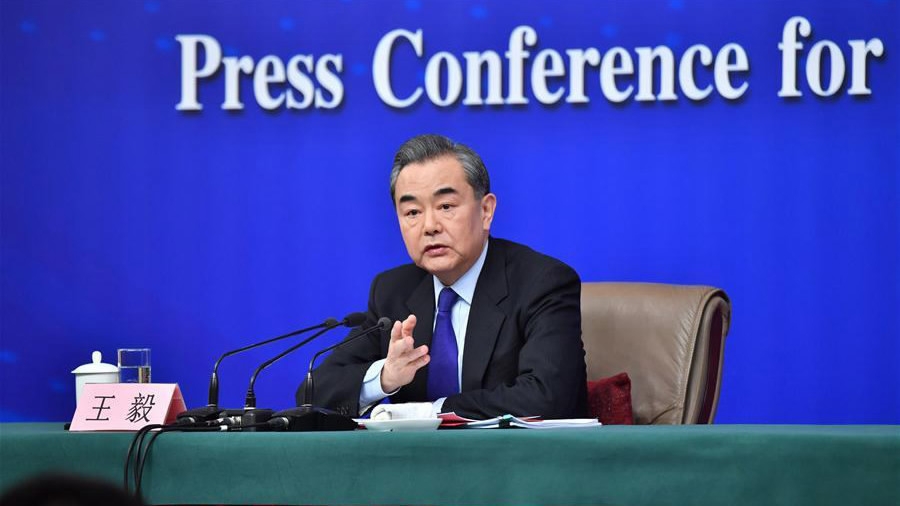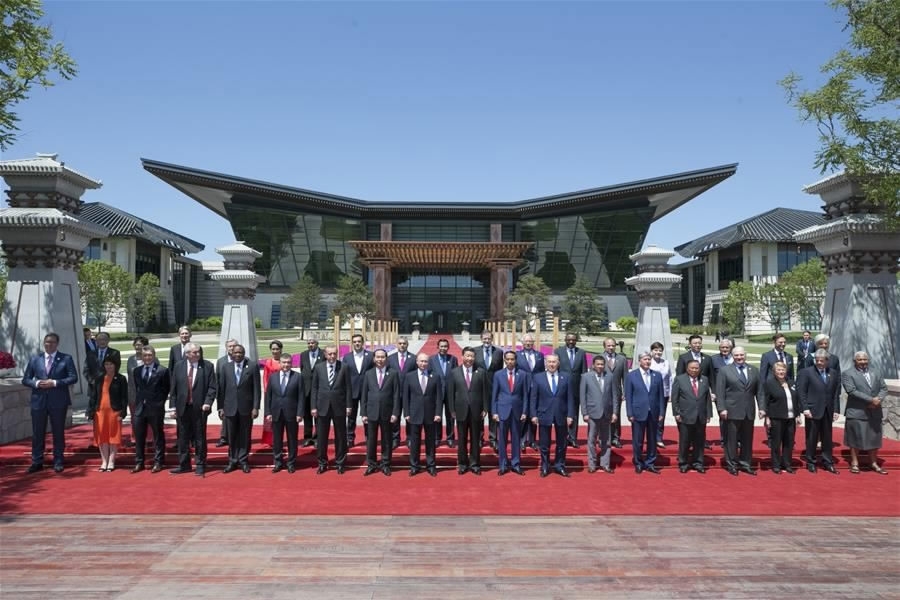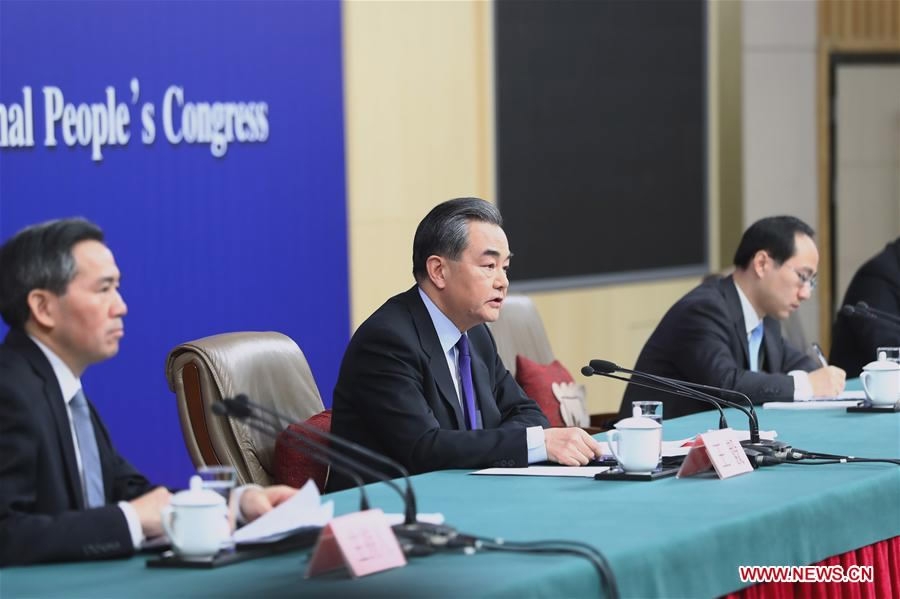
Opinions
22:09, 10-Mar-2018
Opinion: China is not pursuing power but practicing a new, responsible type of diplomacy
Guest commentary by Cui Hongjian

A press conference where China's Foreign Minister Wang Yi addressed many issues has become one of the highlights during the annual session of the National People's Congress (NPC). In spite of this, Wang's appearance this year is particularly eye-catching: The Communist Party of China convened the 19th National Congress that attracted worldwide attention last year and put forward a series of important development goals.
The relationship between China and the world will thus undergo some important changes, which will have an impact on China’s worldview and foreign policy. At the same time, changes in the current international order have also presented a huge challenge to China’s diplomacy. How an increasingly powerful China acts in an increasingly complex world becomes a problem that will raise various concerns for all parties.

Chinese President Xi Jinping, foreign delegation heads and guests pose for a group photo at the Leaders' Roundtable Summit of the Belt and Road Forum (BRF) for International Cooperation at Yanqi Lake International Convention Center in Beijing, May 15, 2017. /Xinhua Photo
Chinese President Xi Jinping, foreign delegation heads and guests pose for a group photo at the Leaders' Roundtable Summit of the Belt and Road Forum (BRF) for International Cooperation at Yanqi Lake International Convention Center in Beijing, May 15, 2017. /Xinhua Photo
China is working hard and steadfastly to implement a series of diplomatic proposals, which was the first signal sent by Minister Wang during the press conference. The goal of China’s diplomacy is to build new-type international relations and jointly build a community of shared future for humankind in the new era by promoting a new type of diplomacy as General Secretary Xi Jinping emphasized in his report to the 19th National Congress of the CPC.
Different from the usual and traditional understanding, a new type of diplomacy proposed by China does not mean that the world order is dominated by a few big countries and most countries have to obey the hierarchical order. On the contrary, what China advocates is an international order that respects differences and promotes equality and tolerance.
With the increase of comprehensive national strength, what role China will play in the world and how it will wield its strength has become a problem that needs to be taken seriously. Taking more responsibility instead of blindly pursuing power expansion is the answer given by China’s diplomacy from theory to policy practice.

Chinese Foreign Minister Wang Yi (C) answers questions on China's foreign policies and foreign relations at a press conference on the sidelines of the first session of the 13th National People's Congress in Beijing, March 8, 2018. /Xinhua Photo
Chinese Foreign Minister Wang Yi (C) answers questions on China's foreign policies and foreign relations at a press conference on the sidelines of the first session of the 13th National People's Congress in Beijing, March 8, 2018. /Xinhua Photo
Therefore, we will witness that China will continue to demonstrate its support for healthy globalization and an open economy and promote multilateralism through hosting some events this year, a concrete move for China’s diplomacy to achieve its policy promise. This year coincides with the 40th anniversary of China’s reform and opening up, China will show its firm position of maintaining openness, supporting free trade and an open economy to the international community by the annual conference of the Boao Forum for Asia and the first China International Import Expo in Shanghai.
This is especially important in the context of the rising protectionism in the world and the fact that some countries have blatantly undermined the rules of free trade. China also tries its best to maintain world stability and prosperity by actively participating in regional cooperation. China will promote the “Shanghai Spirit” of mutual trust, mutual benefit, equality, consultation, respect for diverse civilizations, and seek common development by hosting the SCO Summit, and provide new opportunities for all African countries of participating in the “Belt and Road Initiative” through the China-Africa Cooperation Forum Summit and enhancing China-Africa comprehensive strategic partnership.
Taking more responsibility certainly means working with the international community to face difficult and complex issues. Minister Wang touched the hot issue of the Korean Peninsula and showed his confidence in leading the right direction of settling disputes peacefully. As a reliable stakeholder of the Korean issue, Wang also rationally appealed to all parties to show political courage and sincerity by promoting contact and dialogue continually under the "suspension for suspension" approach proposed by Chinese side, and avoid negative interference against the regional peace.
The current world is full of uncertainties during the transition from the old order to the new one. In this process, the great powers should reconsider their responsibilities instead of playing a crazy game of power. In China’s political culture, power has always meant responsibility rather than possession and slavery. China’s diplomacy demonstrates China’s wisdom through its efforts. This is in the fundamental interests of the international community. Therefore, China’s diplomatic efforts are bound to win more and more sincere support and partners.
(The author is senior fellow, director of European Studies, China Institute of International Studies. The article reflects the author's opinion, and not necessarily the views of CGTN.)

SITEMAP
Copyright © 2018 CGTN. Beijing ICP prepared NO.16065310-3
Copyright © 2018 CGTN. Beijing ICP prepared NO.16065310-3